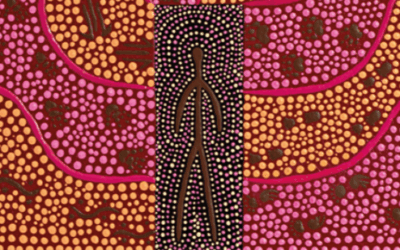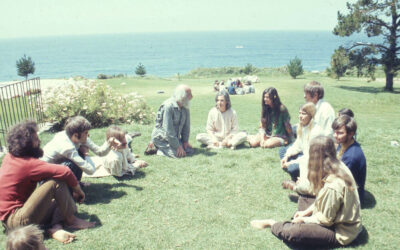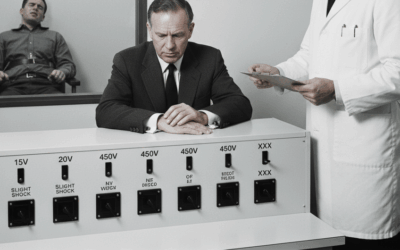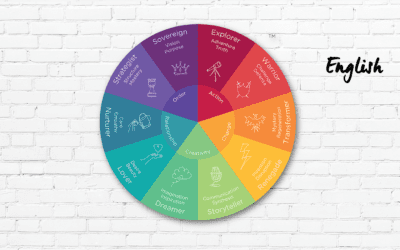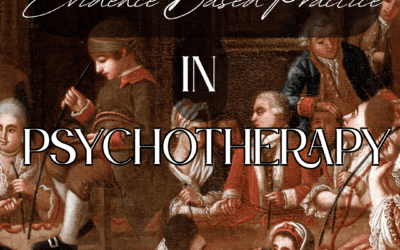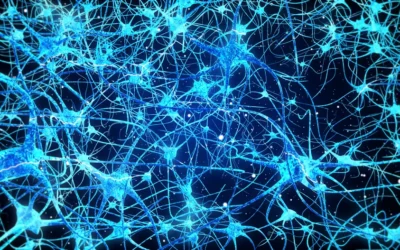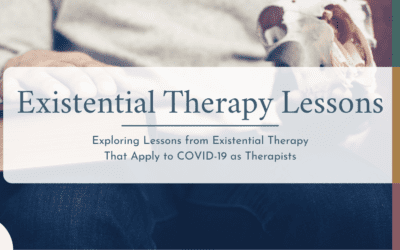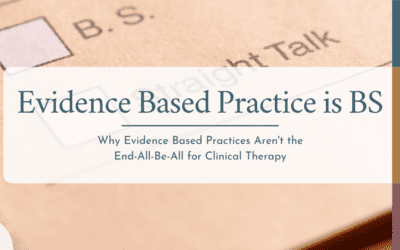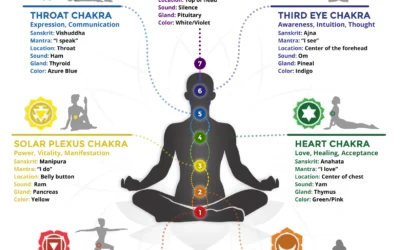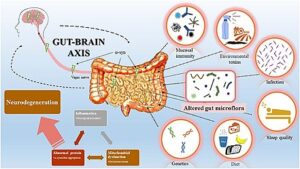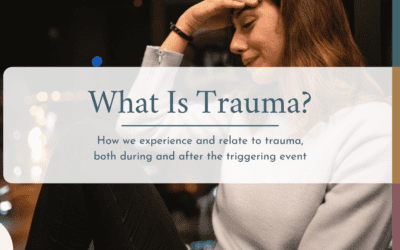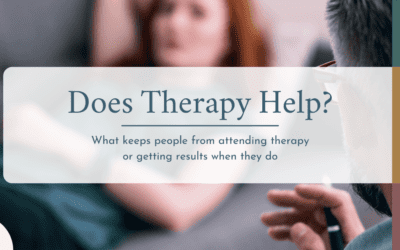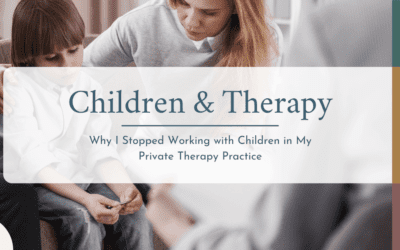Discover energy psychotherapy, a revolutionary approach integrating ancient Eastern wisdom with modern neuroscience. Learn about somatic therapies, EFT, brainspotting, Hakomi, and other body-based treatments that address trauma at its physiological roots—offering hope when talk therapy alone isn’t enough.
Holistic Therapy and Mental Health: Integrating Mind, Body, Spirit for Complete Healing

Comprehensive Wellness Approaches for Sustainable Mental Health in Birmingham
Welcome to Taproot Therapy Collective’s exploration of holistic approaches to mental health that honor the interconnection of mind, body, spirit, and environment in healing and wellness. As Birmingham’s leading integrative therapy practice, we recognize that lasting mental health transformation requires attention to multiple dimensions of human experience including physical health, spiritual wellbeing, environmental factors, and social connections.
Understanding Holistic Mental Health Care
Our Holistic Therapy and Mental Health blog category examines how comprehensive approaches to psychological wellness address the whole person rather than isolated symptoms. Holistic mental health recognizes that psychological symptoms often reflect imbalances across multiple life domains including physical health, nutritional status, movement patterns, sleep quality, spiritual connection, environmental factors, and social relationships.
This approach builds on the comprehensive therapeutic philosophy outlined on our main services page, where we integrate multiple evidence-based modalities including EMDR, Brainspotting, somatic therapies, and Jungian approaches that naturally address mind-body connections and support individuals in reconnecting with their authentic life path and deeper purpose.
Mind-Body Integration in Mental Health Treatment
Somatic Approaches and Body Awareness recognize that psychological trauma and emotional distress are stored in the body through tension patterns, breathing restrictions, and nervous system dysregulation. Somatic therapies including Somatic Experiencing, body-based psychotherapy, and mindful movement help individuals develop healthy relationships with their physical experience while processing psychological material through embodied awareness.
Understanding how trauma affects the nervous system through polyvagal theory informs therapeutic approaches that address both psychological symptoms and physiological dysregulation. This integration proves particularly valuable for individuals whose mental health symptoms include physical manifestations like chronic pain, digestive issues, or autoimmune conditions that may reflect unresolved psychological stress.
Breathwork and Nervous System Regulation provides accessible tools for emotional regulation, stress reduction, and psychological integration through conscious breathing practices. Various breathwork modalities including pranayama, holotropic breathwork, and therapeutic breathing exercises offer both immediate symptom relief and long-term nervous system rebalancing that supports mental health recovery and maintenance.
Research from Stanford Medicine demonstrates how controlled breathing practices directly influence autonomic nervous system function, emotional regulation, and cognitive flexibility, providing scientific validation for incorporating breathwork into comprehensive mental health treatment approaches.
Nutritional Psychiatry and Mental Health
Food as Medicine for Mental Health examines the growing field of nutritional psychiatry that explores how dietary choices, nutrient deficiencies, and gut health significantly impact mood, cognition, and psychological resilience. Research from Harvard T.H. Chan School of Public Health demonstrates strong correlations between dietary patterns and mental health outcomes.
Understanding how blood sugar fluctuations, inflammatory foods, and nutrient deficiencies contribute to anxiety, depression, and mood instability helps therapists provide comprehensive treatment recommendations that address both psychological and physiological factors affecting mental health. This approach proves particularly valuable for individuals whose mental health symptoms correlate with dietary patterns or digestive health issues.
Gut-Brain Connection and Microbiome Health explores how intestinal health directly influences neurotransmitter production, immune function, and psychological wellbeing through the vagus nerve and microbiome-brain axis. Research from University of California San Francisco reveals how gut bacteria influence mood regulation, anxiety levels, and cognitive function.
Integrating attention to digestive health, probiotic support, and anti-inflammatory nutrition with traditional psychotherapy provides comprehensive approaches to mental health that address underlying physiological contributors to psychological symptoms while supporting long-term wellness and resilience.
Movement, Exercise, and Mental Health Integration
Exercise as Mental Health Medicine draws on extensive research demonstrating that regular physical activity provides antidepressant and anxiolytic effects comparable to medication for many individuals. Understanding how different types of movement including aerobic exercise, strength training, yoga, and dance support mental health helps therapists provide comprehensive treatment recommendations.
Yoga and Mindful Movement integrate physical practice with mindfulness, breathwork, and spiritual development to provide holistic approaches to mental health that address body awareness, emotional regulation, and spiritual connection simultaneously. Research from Duke University School of Medicine supports yoga’s effectiveness for anxiety, depression, and trauma recovery.
Nature-Based Movement and Ecotherapy recognizes how outdoor physical activity provides additional mental health benefits through nature connection, vitamin D exposure, and environmental engagement. Birmingham’s natural resources including Oak Mountain State Park, the Cahaba River, and numerous hiking trails provide accessible opportunities for therapeutic nature engagement that supports both physical and mental wellness.
Dance and expressive movement therapies offer creative approaches to psychological healing that integrate physical expression with emotional processing, particularly valuable for individuals who struggle with verbal processing or have experienced trauma that affects body awareness and comfort.
Environmental and Lifestyle Factors in Mental Health
Sleep Quality and Mental Health addresses the bidirectional relationship between sleep disturbances and psychological symptoms, recognizing that comprehensive mental health treatment must include attention to sleep hygiene, sleep disorders, and circadian rhythm regulation. Poor sleep significantly impacts mood regulation, cognitive function, and trauma recovery.
Environmental Toxins and Mental Health examines how exposure to chemicals, pollutants, and electromagnetic frequencies may contribute to anxiety, depression, and cognitive symptoms that require attention alongside traditional psychological interventions. Understanding environmental health factors helps identify potential contributors to mental health symptoms that may not respond to therapy alone.
Social Environment and Community Connection recognizes how isolation, toxic relationships, and lack of community support significantly impact mental health outcomes. Holistic approaches address both individual psychological symptoms and social environmental factors that support or undermine mental wellness.
Birmingham’s strong community traditions, neighborhood connections, and cultural institutions provide resources for social support and community engagement that enhance therapeutic outcomes while honoring Southern cultural values of family, community, and mutual aid.
Spiritual Integration and Mental Health
Spiritual Practices and Psychological Wellbeing examines how meditation, prayer, ritual, and spiritual community involvement support mental health through meaning-making, transcendent connection, and value clarification. Research from Duke University’s Center for Spirituality, Theology and Health consistently demonstrates positive correlations between spiritual practices and mental health outcomes.
Nature Spirituality and Ecological Connection explores how relationship with the natural world supports psychological healing through awe experiences, seasonal awareness, and ecological consciousness that provides broader context for personal struggles and growth. Birmingham’s changing seasons, natural beauty, and outdoor recreation opportunities support nature-based spiritual practices.
Energy Work and Subtle Body Awareness includes approaches like acupuncture, Reiki, chakra balancing, and other energy-based modalities that address psychological symptoms through attention to subtle energy patterns and energetic balance. While requiring careful integration with evidence-based approaches, these modalities offer additional resources for individuals seeking comprehensive healing approaches.
Integration with Evidence-Based Practice
Holistic approaches integrate effectively with contemporary therapeutic modalities detailed in our psychology and research section. Trauma therapies like EMDR and Lifespan Integration naturally incorporate somatic awareness and mind-body integration while maintaining evidence-based effectiveness.
Cognitive-behavioral therapy benefits from understanding how physical health, nutrition, and lifestyle factors influence thought patterns and emotional responses. Mindfulness-based interventions draw from contemplative traditions while being adapted for secular therapeutic contexts that honor diverse spiritual orientations.
Family therapy gains depth through understanding how household nutrition, family movement patterns, and environmental factors affect family mental health and relationship dynamics while addressing systemic approaches to wellness that support entire family systems.
Research-Based Insights from Integrative Medicine Centers
Contemporary research from University of Arizona’s Center for Integrative Medicine, Cleveland Clinic’s Center for Functional Medicine, and Mayo Clinic’s Integrative Medicine Program demonstrates the effectiveness of comprehensive approaches that address multiple factors affecting mental health.
Studies consistently show that integrative approaches combining psychological therapy with attention to nutrition, movement, sleep, and stress management produce superior outcomes compared to therapy alone for many mental health conditions including depression, anxiety, and trauma-related disorders.
Neuroscience research reveals how lifestyle factors including exercise, nutrition, and mindfulness practices create neuroplastic changes that support psychological healing and resilience, providing biological validation for holistic approaches to mental health treatment.
Birmingham Applications of Holistic Mental Health
Living in Birmingham, Alabama, creates unique opportunities for holistic mental health approaches that honor regional culture, natural resources, and community traditions. The city’s growing wellness community including yoga studios, healthy restaurants, hiking groups, and wellness practitioners provides supportive environments for comprehensive approaches to mental health.
Birmingham’s culinary traditions offer opportunities for exploring how Southern foods can be adapted for optimal mental health through traditional cooking methods, local produce, and family food traditions that support both cultural connection and nutritional wellness.
The city’s natural beauty including parks, rivers, and nearby mountains provides accessible resources for nature-based healing approaches that support both physical activity and spiritual connection while honoring Southern outdoor traditions and environmental awareness.
Connect with Our Holistic Mental Health Community
For deeper exploration of comprehensive approaches to mental health and wellness, check out more on the Discover + Heal + Grow Taproot Therapy Collective blog and podcast where we regularly feature integrative medicine practitioners, nutritional psychiatrists, movement therapists, and holistic mental health specialists.
Subscribe to our YouTube channel for holistic mental health tips and integrative wellness guidance, listen to our podcast for interviews with holistic mental health practitioners and researchers, follow us on Instagram for daily wellness tips and holistic mental health inspiration, connect on LinkedIn for professional resources on integrative mental health approaches, find us on Google Maps for comprehensive holistic mental health services, and join our Reddit community for discussions on holistic healing, integrative wellness, and comprehensive mental health approaches.
Featured Article Categories
Our Holistic Therapy and Mental Health blog includes Mind-Body Integration exploring somatic approaches and embodied healing, Nutritional Psychiatry examining food and mental health connections, Movement and Exercise investigating physical activity’s mental health benefits, Environmental Wellness addressing lifestyle and environmental factors affecting psychological wellbeing, Spiritual Integration exploring contemplative practices and meaning-making in mental health, Sleep and Circadian Health covering rest and mental wellness connections, Alternative and Complementary Modalities examining evidence-based integrative approaches, and Research and Science covering studies on holistic mental health interventions.
Specialized Holistic Programs
We offer quarterly Holistic Mental Health Intensives combining therapy with nutrition education, movement therapy, and mindfulness training, monthly Wellness Integration Groups for individuals pursuing comprehensive approaches to mental health, specialized Somatic Therapy Programs addressing mind-body connections in healing, and individual Integrative Mental Health Consultations helping clients develop personalized holistic wellness plans.
Start Your Holistic Healing Journey Today
True mental health transformation often requires attention to multiple dimensions of human experience including physical health, spiritual connection, environmental factors, and social relationships. Our Birmingham-based team at Taproot Therapy Collective integrates evidence-based psychological treatments with holistic approaches that support sustainable wellness and authentic self-expression.
Contact Taproot Therapy Collective: 📍 2025 Shady Crest Dr. Suite 203, Hoover, AL 35216
📞 (205) 598-6471
🌐 www.GetTherapyBirmingham.com
🎧 Podcast: gettherapybirmingham.podbean.com
We provide comprehensive mental health care that honors the interconnection of mind, body, spirit, and environment for sustainable healing and authentic wellness.
Discover + Heal + Grow with Taproot Therapy Collective – Birmingham’s center for holistic mental health and integrative wellness approaches.
Why Somatic and Brain-Based Therapies Outperform Talk Therapy for Emotional Dysregulation
Alternative Medicine and Holistic Health, Depth Psychology Approaches and Techniques, Evidence Based Practice in Therapy, Executive and Physician Burnout, Guided Meditations for Therapy
Discover why somatic and brain-based therapies often outperform talk therapy for trauma and emotional dysregulation. Explore the neurobiology of afferent feedback, the vagus nerve, and how body-to-brain signaling drives persistent emotional states.
The Grief Before the Gift:
Alternative Medicine and Holistic Health, Psychology, Psychology Topics and Articles
Why Healing Requires Confronting What We Most Want to Avoid When I first began my career as a clinical social worker, I worked with individuals who had been chronically homeless and actively psychotic for years—sometimes five, ten, even fifteen years of living on the margins, their inner worlds overtaken by voices and visions that separated them from consensus reality. Many of these individuals had become fixtures in their communities, known by name to local police officers and emergency room staff, cycling...
The Primacy of the Body: Why Somatic and Brain-Based Therapies Outperform Talk Therapy for Emotional Dysregulation
Alternative Medicine and Holistic Health, Evidence Based Practice in Therapy, Psychology, Psychology Topics and Articles, Somatic Experiencing In Alabama, Trauma, Depth Psychology, and Social Work
A neurobiological argument for the dominance of afferent feedback in emotional persistence and the therapeutic implications for trauma treatment
The Department of Education Just Declared War on Your Therapist:
Alternative Medicine and Holistic Health, Brainspotting in Alabama: Revolutionary Trauma Therapy for Deep Healing, Evidence Based Practice in Therapy, Free Resources for Therapists in Private Practice, Mental Health and Psychotherapy Resources in Alabama, Mental Health and Trauma Therapy in Alabama, Psychology, Psychology Topics and Articles, Therapy Resources for Alabama
The DOE reclassified social work degrees as non-professional which threatens Alabama mental healthcare access, professional liability insurance, credentialing, and the private practice model that emerged from 1980s reforms. This comprehensive analysis examines immediate and long-term implications for therapists and patients.
On Arrogance and Excellence: Deconstructing the Double Binds of Modern Psychotherapy
Alternative Medicine and Holistic Health, Evidence Based Practice in Therapy, Jungian Therapy and Depth Psychology, Psychology, Therapy Resources for Alabama
A deep critique of modern psychotherapy, exposing the flaws in ‘Evidence-Based Practice,’ the anti-scientific nature of the DSM, and the STAR*D scandal. This article argues that the profit motive and a ‘low-trust’ model are stifling clinical innovation.
The Archetype’s in Brand Psychology: Building Authentic Identity Through Jung’s Timeless Wisdom
Alternative Medicine and Holistic Health, Anthropology and Evolutionary Psychology for Therapy, Design Psychology, Industrial Organisational Psychology, Therapeutic Approaches and Techniques for Therapists, Trauma, Depth Psychology, and Social Work
Discover how Jung’s Jester archetype and the 12 archetypal patterns transform brand identity, from therapy practices to Fortune 500 companies. Learn practical strategies for authentic archetypal branding that bridges ancient wisdom with modern neuroscience.
Navigating the Fog: An Informal Look at Postpartum Depression
Alternative Medicine and Holistic Health, Brainspotting in Alabama: Revolutionary Trauma Therapy for Deep Healing, Mental Health and Psychotherapy Resources in Alabama, Mental Health and Trauma Therapy in Alabama, Micro-nutrition and Vitamins for Mental Health, Motherhood and Perinatal Therapy, Therapy Resources for Alabama
Postpartum Depression: Understanding the Symptoms and Finding Support Bringing a child into the world is a life-altering experience, filled with moments of profound joy and, just as often, overwhelming challenges. It’s common to hear about the "baby blues"—periods of sadness, weepiness, or anxiety in the first couple of weeks after birth. But for many new parents, these feelings don't fade. They may intensify, becoming a heavy, persistent fog that makes it difficult to care for yourself or your new baby....
Understanding the Peaks and Valleys: A Guide to Bipolar Disorder and an Informal Self-Screener
Alternative Medicine and Holistic Health, Mental Health and Trauma Therapy in Alabama, Micro-nutrition and Vitamins for Mental Health, Therapy Resources for Alabama
Explore the signs of Bipolar Disorder with our comprehensive guide. Learn about Bipolar I, Bipolar II, and mood episodes, and use our informal 30-question screener as a tool for self-reflection before speaking with a professional.
The Tech-Enhanced Therapy Room: A Clinician’s Guide to AI, Neuro-Tech, and Vagal Nerve Stimulators
Alternative Medicine and Holistic Health, Evidence Based Practice in Therapy, Free Resources for Therapists in Private Practice
An expert review for psychotherapists on technology integration in therapy. Covers AI’s role, neuro-tech like QEEG, VR for trauma, Polyvagal Theory, and an evidence-based review of the Alpha-Stim device for anxiety, insomnia, and depression.
The Worst Drug for You Is the One That Makes You Feel Normal: Understanding Addiction Through Modern Neuroscience
Alternative Medicine and Holistic Health, Mental Health and Psychotherapy Resources in Alabama, Psychology, Therapy and Crisis Intervention for College Students in Alabama, Therapy for Chronic Pain and Chronic Illness
🧠 The Neurobiology of "Normal": Why Addiction is the Brain Seeking Equilibrium There's a moment that many people struggling with addiction describe with haunting clarity: the first time a substance didn't make them feel high, but made them feel normal. For the first time in their lives, they felt what they imagined everyone else felt like all the time—calm, confident, capable of handling life. This experience, often dismissed as merely "self-medicating," actually reveals something profound about the neurobiology...
From Skepticism to Science: How Emotional Transformation Therapy is Revolutionizing Mental Health Treatment – A Deep Dive with MJ Denis
Alternative Medicine and Holistic Health, Models of Psychotherapy
When Light Meets Neuroscience In the ever-evolving landscape of mental health treatment, breakthrough moments often come from the most unexpected places. What if the key to unlocking trauma, dissolving anxiety, and alleviating chronic pain wasn't found in talking through problems or even in traditional brain-based therapies, but in the precise application of colored light wavelengths? This isn't science fiction or new-age mysticism—it's the cutting-edge reality of Emotional Transformation Therapy (ETT), a...
Subconscious vs Unconscious: The Epic Split Between Jung and Freud That Still Divides Psychology Today
Alternative Medicine and Holistic Health, History of Psychotherapy, Jungian Therapy and Depth Psychology, Psychotherapy Biographies: Historical Figures in the History of Psychology
🏛️ The Great Divide: When Giants Collided The relationship between Sigmund Freud and Carl Jung remains one of the most foundational and dramatic ruptures in modern intellectual history. It was a clash of titans that went far beyond a personal squabble, creating a fundamental schism in the young science of psychology that continues to define its different branches today. What began as a passionate friendship between the established father of psychoanalysis and his chosen heir descended into bitter acrimony by...
Teyber’s Interpersonal Process in Therapy:
Alternative Medicine and Holistic Health, Free Resources for Therapists in Private Practice, Psychology Topics and Articles, Therapy Resources, Tips and Tools
Buy the Book How Edward Teyber's Revolutionary Approach Transformed My Journey from Anxious Student to Confident Therapist I still remember sitting in my social work school classroom, frantically taking notes on CBT protocols and DBT worksheets, feeling increasingly overwhelmed with each passing lecture. The more theoretical models and manualized treatments I learned, the more confused I became about how I would ever actually sit down with a real human being and do therapy. My notebooks were filled with...
The Trouble with Evidence-Based Practice in Psychology: Why the Field Needs to Evolve as a Soft Science
Alternative Medicine and Holistic Health, Evidence Based Practice in Therapy, Free Resources for Therapists in Private Practice
Evidence-based practice (EBP) has become the dominant paradigm in psychology over the past few decades, shaping everything from research funding priorities to clinical training curricula to third-party reimbursement policies. On the surface, EBP seems unassailable - after all, who could be against using scientific evidence to guide clinical decision-making? However, a closer examination reveals a number of deep-seated problems with how EBP is currently conceptualized and implemented in the field of psychology....
Holographic Memory Theory: Implications for Trauma Healing and Consciousness
Alternative Medicine and Holistic Health, Depth Psychology Approaches and Techniques, Jungian Therapy and Depth Psychology, Somatic Experiencing In Alabama
What is Holographic Memory Theory? The holographic memory theory represents one of the most fascinating paradigm shifts in our understanding of the brain, memory, and consciousness. First proposed through the collaborative insights of neuroscientist Karl Pribram and quantum physicist David Bohm, this theory suggests that memory storage and retrieval operate according to principles similar to those found in holography. Unlike traditional models that locate specific memories in discrete neural regions, holographic...
Integrating qEEG BrainMapping into Your Clinical Practice
Alternative Medicine and Holistic Health, Evidence Based Practice in Therapy, Mental Health and Psychotherapy Resources in Alabama, Mental Health and Trauma Therapy in Alabama, Neuroscience and the Brain for Therapists, Therapy Resources for Alabama
Unlocking the Power of qEEG Brain Mapping and Neurostimulation: A Game-Changer for Mental Health Treatment Mental health conditions such as ADHD, autism spectrum disorder (ASD), PTSD, anxiety, and depression can significantly impact an individual's quality of life, relationships, and overall well-being. While traditional treatment approaches like therapy and medication can be effective, cutting-edge technologies such as qEEG brain mapping and neurostimulation are revolutionizing the field of mental health...
Unlocking the Potential of qEEG Brain Mapping and Neuromodulation for Autism Spectrum Disorder
Alternative Medicine and Holistic Health, Executive and Physician Burnout, Mental Health and Psychotherapy Resources in Alabama
At Taproot Therapy Collective, we are at the forefront of innovative treatments for autism spectrum disorder (ASD). Our approach combines the cutting-edge technologies of qEEG brain mapping and neuromodulation to provide personalized, targeted interventions that address the unique challenges faced by individuals with ASD. By harnessing the power of these advanced techniques, we aim to promote positive changes in brain function, behavior, and overall quality of life. Understanding Autism Spectrum Disorder Autism...
Harnessing the Power of Micronutrients for Mental Health
Alternative Medicine and Holistic Health, Micro-nutrition and Vitamins for Mental Health, Motherhood and Perinatal Therapy, Neuroscience and the Brain for Therapists, Understanding Neurodivergence and Neurodiversity in Therapy
Can Vitamins Treat ADHD and ASD? In today's fast-paced, stressful world, mental health challenges are on the rise. While conventional treatments like therapy and medication can be helpful, many people are seeking natural ways to support their brain health and emotional well-being. One promising approach that's gaining traction is micronutrient therapy - the use of carefully formulated supplements to provide the brain with the essential vitamins, minerals, and other nutrients it needs to function at its best. At...
Mighty Minerals for Mental Health: How Hardy Daily Essentials Nutrients Supports Brain Function and Emotional Wellbeing
Alternative Medicine and Holistic Health, Micro-nutrition and Vitamins for Mental Health, Understanding Neurodivergence and Neurodiversity in Therapy
What does the research say about how minerals effect mental health? Minerals are the unsung heroes of brain health, playing essential roles in everything from neurotransmitter synthesis and signaling to energy production and neuroplasticity. Unfortunately, modern diets and lifestyles can leave us depleted of these critical nutrients, contributing to the rising tide of mood disorders and cognitive issues. That's where Hardy Nutritionals' Daily Essential Nutrients comes in. This innovative supplement is carefully...
Understanding Postpartum Depression: Symptoms, Effects, and Treatment
Alternative Medicine and Holistic Health, Brainspotting in Alabama: Revolutionary Trauma Therapy for Deep Healing, Mental Health and Psychotherapy Resources in Alabama, Mental Health and Trauma Therapy in Alabama, Motherhood and Perinatal Therapy, Recovering from Abuse, Trauma Treatment in Alabama
Postpartum Depression (PPD): Understanding Symptoms and Finding Qualified Support in Birmingham, AL Bringing a child into the world is a life-altering experience, filled with moments of profound joy and, just as often, overwhelming challenges. It’s common to hear about the "baby blues"—periods of sadness, weepiness, or anxiety in the first couple of weeks after birth. But for many new parents, these feelings don't fade. They may intensify, becoming a heavy, persistent fog that makes it difficult to care for...
The Window of Tolerance: The Healing Gateway in Somatic Therapy
Alternative Medicine and Holistic Health, Mental Health and Psychotherapy Resources in Alabama, Somatic Experiencing In Alabama
What is the Window of Tolerance in Psychology? In the realm of psychology and personal growth, the concept of the "window of tolerance" has emerged as a powerful framework for understanding the dynamics of stress, emotional regulation, and resilience. First coined by psychiatrist Dr. Dan Siegel, the term refers to the optimal zone of arousal where a person is able to function most effectively - neither too overwhelmed nor too disengaged. Interestingly, while the specific language of the "window of tolerance" is a...
The Fusion of Science and Mysticism: Neurobiology and Soul
Alternative Medicine and Holistic Health, Jungian Therapy and Depth Psychology, Neuroscience and the Brain for Therapists
Eastern Body, Western Mind: Exploring Anodea Judith's Book Key Points: Anodea Judith integrates the Eastern chakra system with Western developmental psychology, somatic theory, and Jungian archetypes to create a comprehensive framework for understanding human development. The seven chakras represent distinct stages of physical, emotional, and psychological growth, each with its own developmental tasks and challenges. Unresolved traumas or unmet needs at any stage can lead to energetic blocks in the corresponding...
Autism and OCD:
Alternative Medicine and Holistic Health, Mental Health and Psychotherapy Resources in Alabama, Understanding Neurodivergence and Neurodiversity in Therapy
Unraveling the Complexity of Overlapping Behaviors What is Autism with OCD? Autism Spectrum Disorder (ASD) and Obsessive-Compulsive Disorder (OCD) are distinct neurodevelopmental conditions that can co-occur in some individuals. Recent research suggests that up to 17% of autistic individuals also meet criteria for OCD. When someone has both autism and OCD, it creates a unique neurological profile that we'll refer to as autism-OCD. The Diagnostic Evolution of Autism-OCD Historically, the repetitive behaviors seen...
Lessons on Acceptance from Irvin Yalom’s Existential Psychotherapy
Alternative Medicine and Holistic Health, Anthropology and Evolutionary Psychology for Therapy, Philosophy for Therapists, Psychology, Psychology of Modernism Post Modernism and the Meta Modern, Psychotherapy Biographies: Historical Figures in the History of Psychology
The Stages of Grief as Defelection from Existential Dread We all go through the stages of grief all of the time: The stages of grief - denial, anger, bargaining, depression, and acceptance - represent common emotional reactions to loss and change (Kübler-Ross & Kessler, 2005). However, they can also be seen as ways we deflect away from reality to pretend our interior emotional spaces can control external circumstances. In the depths of grief, we rage against what is, bargain for a different outcome, and sink...
The Neuroscience and Phenomenology of Brainspotting
Alternative Medicine and Holistic Health, Anthropology and Evolutionary Psychology for Therapy, Brainspotting in Alabama: Revolutionary Trauma Therapy for Deep Healing, Neuroscience and the Brain for Therapists, Therapy Resources for Alabama, Trauma Treatment in Alabama
An In-Depth Exploration of What Brainspotting Does in the Brain Brainspotting is a relatively new psychotherapy approach that combines elements of psychodynamic, somatic, and mindfulness-based therapies to facilitate deep emotional healing and trauma resolution [1]. Developed by David Grand in 2003, brainspotting operates on the premise that "where you look affects how you feel" [2]. By guiding the client's visual focus to specific external positions (brainspots), the therapist can help access and process...
What Does Alchemy Have to Do With Psychology?
Alternative Medicine and Holistic Health, Depth Psychology Approaches and Techniques, Jungian Therapy and Depth Psychology
A History of Alchemical Symbolism and Metaphor The connection between alchemy and psychology has been a subject of intrigue and controversy. Influential thinkers like Manly P. Hall and Carl Jung saw the history of alchemy as an integral part of the evolution of human psychology, rather than just a primitive pseudoscience. Manly P. Hall believed that the alchemists of old were consciously guarding and encoding an esoteric process of self-actualization into the language and symbolism of a material science. In his...
A History of the Witch Archetype, In Preperation for Haloween
Alternative Medicine and Holistic Health, Anthropology and Evolutionary Psychology for Therapy, Mythology and Therapy
What Does the Witch Represent in Psychology? As the nights grow longer and Halloween draws near, our thoughts turn to the spooky, the mystical, and the uncanny. This is the time of year when we confront the shadows - both literal and psychological. One of the most potent and pervasive archetypal images associated with this season is the witch. Reviled and revered, persecuted and empowered, the witch has haunted the human psyche for centuries. But who is the witch, really? Is she merely a Halloween caricature - a...
When Evidence Based Practice Goes Wrong
Alternative Medicine and Holistic Health, Evidence Based Practice and Research Psychology, Evidence Based Practice in Therapy, Executive and Physician Burnout, History of Psychotherapy
Balancing Evidence and Experience: Lessons from the STAR*D Scandal and the Future of Psychotherapy For decades, **psychotherapy** has walked a tightrope between the worlds of **scientific research** and **clinical practice**. On one side, a growing emphasis on evidence-based models promises therapeutic approaches grounded in objective data. On the other, skilled clinicians rely on hard-earned wisdom, theoretical savvy, and a nuanced reading of each client's unique needs. Binding these worlds together, we...
The Somatic and Neurological Experience of Brainspotting Therapy
Alternative Medicine and Holistic Health, Mental Health and Psychotherapy Resources in Alabama, Somatic Experiencing In Alabama, Understanding Neurodivergence and Neurodiversity in Therapy
The Trauma Healing Power of Brainspotting Brainspotting is a powerful therapeutic approach that engages the body and brain in a unique way to facilitate healing from trauma and emotional distress. Developed by Dr. David Grand, brainspotting evolved out of his work with EMDR (Eye Movement Desensitization and Reprocessing) and taps into the deep connection between the brain's visual system, emotional processing centers, and physiological responses. While the process may vary for each individual, there are some...
How Therapy Can Help Heal the Mind and Body
Alternative Medicine and Holistic Health, Lifespan integration in Alabama, Recovering from Abuse, Therapy Resources, Tips and Tools
Trauma and the Brain: Trauma, whether stemming from emotional abuse, narcissistic abuse, chronic pain, or other experiences, can have a profound impact on the brain and body. Psychologists and therapists are increasingly recognizing the importance of trauma-informed therapy in treating mental health issues like anxiety, depression, PTSD, and more. The Neurobiological Impact of Trauma Trauma can alter the brain's structure and function, particularly in regions like the amygdala, hippocampus, and prefrontal cortex....
The Extensive Evidence-Based Benefits of Aromatherapy
Alternative Medicine and Holistic Health
Is Aromatherapy Evidence Based? Aromatherapy, the therapeutic application of natural plant extracts and essential oils, is a practice deeply rooted in global healing traditions. From the sacred incense of ancient temples to the medicinal blends of traditional apothecaries, aromatic botanicals have been integral to ritual, spirituality, and medicine across cultures and throughout history. The Aztecs revered palo santo wood for its cleansing and healing properties in sacred ceremonies. Frankincense was prized in...
Vipassana Meditation: An Ancient Technique for Developing Insight and Equanimity
Alternative Medicine and Holistic Health, Spirituality and The Transcendent Function in Psychotherapy
Is Vipassana what I need to heal trauma? Vipassana, which means "to see things as they really are," is an ancient meditation technique that originated in India over 2,500 years ago. This powerful practice focuses on developing insight into the nature of reality and cultivating equanimity in the face of life's challenges. This article explores the history, principles, and benefits of Vipassana meditation, as well as practical guidance for incorporating this transformative practice into daily life. The Origins and...
The Kundalini Experience: Investigating the Powerful Spiritual Energy in Yogic Traditions
Alternative Medicine and Holistic Health
What is a Kundalini Awakening? Kundalini, often described as a coiled serpent at the base of the spine, is a central concept in yogic traditions, representing a powerful spiritual energy that lies dormant within every individual. When awakened, this energy is said to rise through the chakras, leading to profound spiritual experiences, heightened awareness, and ultimately, a state of enlightenment. This article explores the concept of Kundalini, its significance in yogic traditions, and the methods used to safely...
Awakening the Third Eye: Exploring the Mystical Concept and Its Practical Applications
Alternative Medicine and Holistic Health
What is a third Eye in Hindu Practice? The third eye, also known as the Ajna chakra, is a mystical concept that has captured the imagination of spiritual seekers for centuries. Often associated with intuition, insight, and higher consciousness, the third eye is believed to be a gateway to profound spiritual experiences and inner wisdom. This article explores the concept of the third eye, its significance in various mystical traditions, and practical methods for awakening and cultivating this powerful energy...
Understanding the Seven Chakras: Energy Centers in the Body and Their Significance in Mystical Traditions
Alternative Medicine and Holistic Health
Are Chakras Based In Psychology? In various mystical and spiritual traditions, the concept of chakras holds a central place in understanding the body's energy systems and their connection to physical, emotional, and spiritual well-being. Chakras are believed to be spinning wheels of energy located along the spine, each associated with specific qualities, elements, and aspects of human experience. This article explores the seven main chakras, their characteristics, and their significance in mystical practices. The...
The Gut-Brain Connection: How Micronutrition and Synergistic Nutrition Support Mental Health
Alternative Medicine and Holistic Health, Mental Health and Psychotherapy Resources in Alabama, Mental Health and Trauma Therapy in Alabama, Micro-nutrition and Vitamins for Mental Health, Neuroscience and the Brain for Therapists, Recovering from Abuse, Understanding Neurodivergence and Neurodiversity in Therapy
What supplements help mental health? Supplements for Mental Health: Vitamin A: Essential for brain development and function, may impact mood regulation. Vitamin C: Acts as an antioxidant, potentially reducing oxidative stress in the brain associated with anxiety and depression. Vitamin D: Linked to mood regulation and cognitive function, deficiency associated with increased risk of depression. Vitamin E: Antioxidant properties may protect brain cells from oxidative damage. Vitamin K: Emerging research suggests a...
The Psychology of Color: What effect does color have on brain function?
Alternative Medicine and Holistic Health, Mental Health and Psychotherapy Resources in Alabama
The Impact of Color on Somatics and Cognition: Insights from Emotional Transformation Therapy Color plays a profound role in shaping our emotional experiences and cognitive processes. The therapy modality Emotional Transformation Therapy (ETT), pioneered by Dr. Steven Vazquez, delves into the intricate relationship between color, somatics, and cognition. By harnessing the power of color, ETT aims to facilitate emotional healing, promote self-awareness, and enhance overall well-being. ETT recognizes that colors...
Embracing Therapeutic Failures as Opportunities for Growth
Alternative Medicine and Holistic Health, History of Psychotherapy
An Integrative Psychotherapy Perspective As integrative psychotherapists, we are constantly striving to create meaningful connections with our clients and facilitate positive change in their lives. However, despite our best efforts, there are times when our attempts to connect or promote growth seem to fall short. It's natural to view these moments as failures, but what if we could reframe them as valuable opportunities for learning and self-correction? By adopting a perspective similar to Jean Piaget's...
The Frontier of Psychotherapy: Exploring the Profound Impact of Prenatal Development and Birth Experiences on Adult Mental Health
Alternative Medicine and Holistic Health, Neuroscience and the Brain for Therapists, Parenting Psychology and Therapy for Parents, Understanding Neurodivergence and Neurodiversity in Therapy
The field of psychotherapy is undergoing a revolutionary shift as researchers and clinicians alike begin to recognize the profound impact that prenatal development and birth experiences can have on an individual's mental health and well-being throughout their entire lifespan. This exciting area of study is shedding new light on the complex interplay between early life experiences, trauma, and adult psychology, and offering promising avenues for more targeted, effective, and compassionate interventions. Main...
George Fox and the Quaker Path to Integration and Wholeness
Alternative Medicine and Holistic Health, Christian Mysticism in Therapy, Psychology of Mystics, Gurus, and Spiritual Philosophers, Spirituality and The Transcendent Function in Psychotherapy
Who was George Fox? George Fox (1624-1691), the founder of the Religious Society of Friends (Quakers), developed a form of Christian spirituality that continues to offer valuable insights for contemporary psychology and spiritual practices. This article explores Fox's key teachings and their relevance to modern well-being and personal growth. Key Concepts in Fox's Teachings 1. The Inner Light Central to Fox's philosophy Belief in direct, unmediated experience of God within every individual Challenges...
The Mystical Philosophy of Hermes Trismegistus: Insights for Jungian Psychology and the Individuation Process
Alternative Medicine and Holistic Health, Depth Psychology Approaches and Techniques, Phenomenology and Existential Psychology, Psychotherapy Biographies: Historical Figures in the History of Psychology
Who was Hermes Trismegistus Hermes Trismegistus, a legendary figure in the Hermetic tradition, is credited with authoring a body of texts known as the Hermetica, which had a profound influence on Western esotericism, alchemy, and mystical thought. The Hermetic philosophy, with its emphasis on the unity of the cosmos, the correspondence between the macrocosm and the microcosm, and the path of spiritual transformation, shares significant parallels with the psychological theories of Carl Jung, particularly his...
Unlocking the Future of Mental Health: Synergistic Nutrition and Promising Pathways
Alternative Medicine and Holistic Health
In the ever-evolving landscape of healthcare, science is continually pushing boundaries to uncover novel approaches for improving mental health. One promising avenue gaining traction is synergistic nutrition – a concept where specific combinations of nutrients work together to optimize brain function. While much of this technology is still in its research phase, modern studies are pointing towards exciting pathways that may revolutionize mental health treatment in the future. In this article, we will explore the...
How Can Color and Light Heal Trauma
Alternative Medicine and Holistic Health, Neuroscience and the Brain for Therapists
Emotional Transformation Therapy (ETT): A Comprehensive Guide Emotional Transformation Therapy (ETT): A Comprehensive Guide Emotional Transformation Therapy (ETT) is a groundbreaking therapeutic approach developed by psychotherapist Dr. Steven Vazquez that harnesses the transformative power of color, light frequencies, and eye movements to facilitate rapid emotional healing and trauma resolution. Unlike traditional talk therapy, ETT directly interacts with neural networks, allowing for efficient access to...
A Phenomenological Exploration of the Brain: Understanding the Subcortical and Prefrontal Cortex
Alternative Medicine and Holistic Health
What is the Body Brain: Into The Psyche-Soma In this article, we'll delve into a phenomenological understanding of the different parts of the brain and how they contribute to our experiences. This discussion aims to provide an experiential explanation rather than a neurobiological or neuroscience-based analysis. While books on the topic, such as those focusing on trauma or the limbic system, offer detailed scientific explanations, our focus here is on how these brain regions feel during emotional and cognitive...
How Can Supplements Help Gut Health and Mental Health?
Alternative Medicine and Holistic Health
Did you enjoy this article? Checkout the podcast here: https://gettherapybirmingham.podbean.com/ Maintaining a healthy gut microbiome is crucial for overall health and wellbeing. Recent studies have shown that there is a strong connection between gut health and mental health. The gut-brain axis is a complex system that involves communication between the gut microbiota and the brain. Therefore, it is important to pay attention to what we eat and how it affects our gut bacteria. One way to boost gut bacteria is by...
What Did Freud Learn from His Parents?
Alternative Medicine and Holistic Health
https://www.youtube.com/watch?v=nxZYNktbPTc Freud very nearly did not become a psychiatrist. He originally researched as a neurologist before moving into other disciplines. Freud’s journals document a tremendous amount of study in varied topics he saw as likely breakthroughs to bring him renown. Much of his early work was dedicated to the study of cocaine as a treatment for various medical conditions. Freud mentioned some of his preliminary theories on the use of cocaine for anesthesia to his colleague Karl...
What Is Trauma?
Alternative Medicine and Holistic Health, Anthropology and Evolutionary Psychology for Therapy
What Is Psychological Trauma? A Comprehensive Guide Psychological trauma is a complex and often debilitating response to deeply distressing or life-threatening events. This comprehensive guide explores the causes, symptoms, and evidence-based treatments for trauma, providing valuable insights for those seeking to understand and heal from traumatic experiences. The Fight or Flight Response: The Body's Reaction to Danger Understanding the Autonomic Nervous System The fight or flight response, regulated by the...
Does Therapy Help?
Alternative Medicine and Holistic Health, Anthropology and Evolutionary Psychology for Therapy
What is Psychotherapy for? Why Go to Therapy? There are many reasons to go to therapy. You might have problems with anxiety, depression, anger management or have experienced a traumatic event. Some people just feel bad and are not sure what is wrong. They find that therapy helps them identify what they are feeling and why. Our staff at Taproot Therapy are trained to treat a variety of issues and psychological diagnoses. If you have a specific issue you would like to work on we will pair you with someone who...
Evidence Based Practice is Bul$*%!@ , Let’s Fix It!
Alternative Medicine and Holistic Health, Brainspotting in Alabama: Revolutionary Trauma Therapy for Deep Healing, Evidence Based Practice in Therapy, Neuroscience and the Brain for Therapists
Abstract: This article critically examines the current state of evidence-based practice in psychotherapy, particularly in relation to trauma treatment. It challenges the dominance of Cognitive Behavioral Therapy (CBT) and medication-based approaches in research and practice, arguing that these methods often fail to address the root causes of trauma. The author contends that newer, less researched modalities like somatic and brain-based therapies may be more effective in treating trauma, despite their lack of...
Lessons from Existential Therapy That We Can Use with COVID-19 as Therapists
Alternative Medicine and Holistic Health
Check out more articles and resources at: GetTherapyBirmingham.com In times of crisis like these it may not be a bad idea to get outside of the models that you usually use to treat patients. Anxiety is not always a "cognitive distortion" or an "irrational belief". Anxiety is sometimes, as existential therapy posits, a normal response to life and the human condition. We are sometimes meant to examine anxiety and use it for growth and greater understanding of who we are meant to become 1. Look to Philosophy, Look...
Why I Don’t Work With Kids in Therapy Anymore
Alternative Medicine and Holistic Health
The Challenges of Working with Children Early in my career, I aspired to be a therapist who could help anyone, regardless of their age or circumstances. However, as I gained more experience, I began to recognize my own strengths and limitations. A turning point came one Saturday when I found myself on the phone with a 14-year-old patient whose mother had kicked him out of the house in freezing temperatures. He called me, hoping I could pick him up and save him from the cold. While I often take crisis calls from...

